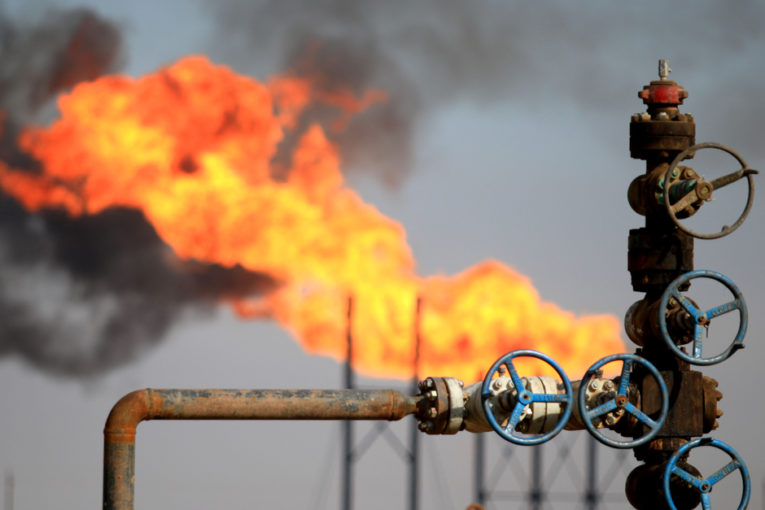
It’s that time of year when we flip our calendars to a new start.
For pundits like me, it’s customary to make a listicle about the year to come – the usual predictions about things like the Organization of the Petroleum Exporting Countries, energy consumption, commodity prices and electric vehicle sales in China. But I decided to fold from that no-win game a while back.
In this age of disruption, there are too many unknowns to honestly predict what will happen next week, let alone 52 of them into the future. So instead of predicting outcomes, I’ve decided to list the top eight unknowns in energy markets for 2018.
Collateral disruption – Bringing on energy projects needs a lot of investment. The shakeup of capital markets is inflicting opaque, collateral disruption to the energy business too. Financial technologies are altering fund flows, market liquidity and access to capital. You thought self-driving cars were the only thing that could affect the oil business? How about robo-trading in debt and equity markets? Energy executives now need to be ‘fintech’ experts too.
Bitcoin after-effects– Crypto-currencies like Bitcoin have seemingly little to do with energy, other than using absurd amounts of electricity. But the underlying blockchain technology will be transformative to financing, supplying and consuming primary energy resources. Bitcoin-mania is legitimizing and accelerating blockchain transaction platforms. Be prepared: Yet-to-be-understood changes to the energy business are coming faster than most people think.
Cartel discipline– Some have suggested that North American oil companies should join the OPEC cartel. There is no need. Western investors joined OPEC in the second half of 2017 by restricting equity capital to oil producers. A new “show me your returns, not your production growth” mantra is restraining oil company spending, and therefore the U.S. rig count. But will it be enough to reign in oil output in 2018? And which will crack first when a barrel of West Texas Intermediate oil hits US$60 per barrel: Investor discipline or OPEC discipline?
Will Russia continue to side with OPEC?As oil prices nudge higher, the incentive to produce more gets sweeter. Outside of OPEC, Russia has the greatest productive clout. Their cloaked restraint, or lack thereof, in a US$60 per barrel world will determine whether oil goes to US$75 per barrel or US$45 per barrel. Putin will keep us guessing.
Middle Eastern geopolitics – Does this obvious uncertainty really need to be mentioned? Yes, because the world’s dependency on this unstable region is becoming greater and greater. World oil consumption will be breaching 100 million barrels-a-day in 2018, at a time when the Middle East’s cold war is ratcheting up. The uncertainty of whether an outage will occur is only exceeded by the uncertainty of what will happen in the event of a supply disruption.
Canadian natural gas prices – Prolific wells are delivering an almost unlimited supply of low-cost natural gas across North America. At times the stuff is coming out of the ground for free. This new reality is redefining production, storage, transportation, consumption – and price. Right now, the outlook for Canadian gas is bearish; but wide arbitrages against higher-priced U.S. and international markets have never lasted. The unknown is: for how long?
The electric vehicle halo– Tesla’s Model 3 will gain traction next year, and other automakers will introduce more EV models. Sales penetration into the passenger market will accelerate, creating more uncertainty about future oil demand. Yet perception won’t be reality any time soon; oil demand is rising above the 10-year average. And oil use goes far beyond turning wheels. Unknown: When will people realize that their energy consuming habits don’t match their perceptions of changing supply?
Compliance with Paris– By 2018 the climate change accord will be three years in the works. The realization will begin to set in that the targets have a high probability of being unachievable – within most countries, and globally as a whole. The biggest unknown to energy markets is what the world governing bodies will do after waking up to this realization.
Yet there are some things I’m confident in predicting in 2018. Global energy consumption will keep rising. Producers of the future will be able deliver more joules to markets with greater efficiency. And the divide between companies that know how to deal with unknowns and those that don’t will widen in a world that is becoming less certain.
What to do? Companies of the future have to adjust to an opportunistic mindset of competing in a fray of increasing unknowns, instead of seeking solace in over-confident predictions that confirm pre-disposed biases. In short, be skeptical of forecasts; keep an open mind; become more flexible and adaptable.
Of course, we all wish for a world when our energy decisions were much simpler. Momentary escape is possible. Put a log in the fireplace. Gather with family and friends. Enjoy the holiday season.
You can read more of the news on source
